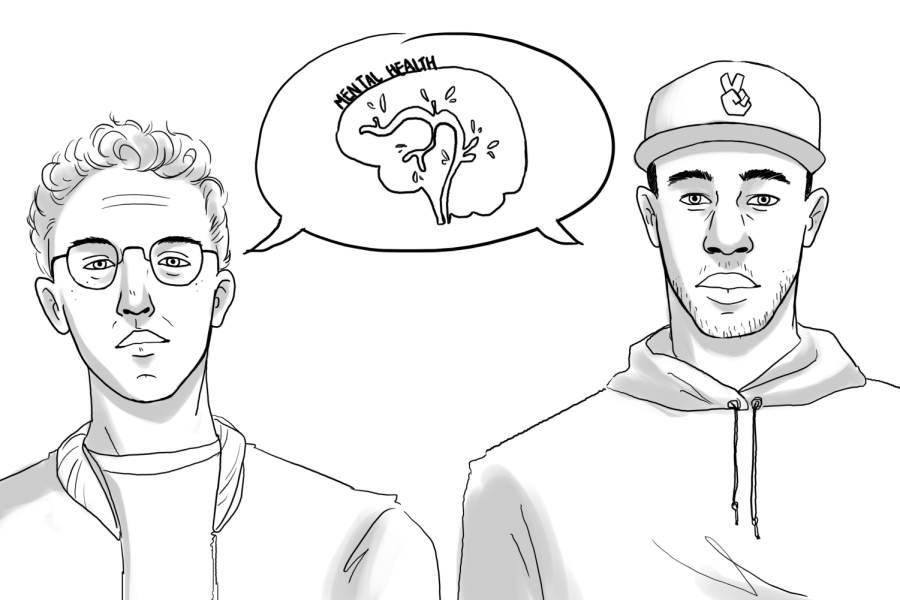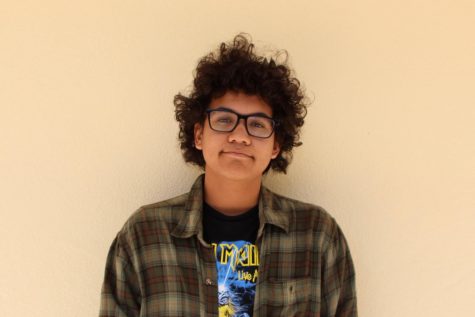Raising Mental Health Awareness Through Hip Hop
October 24, 2017
When Kid Cudi checked himself into rehab in 2016 for depression and suicidal urges, the hip hop scene woke up to the real world of mental illness.
“I simply am a damaged human swimming in a pool of emotions everyday of my life,” Cudi wrote in a Facebook post. “My anxiety and depression have ruled my life for as long as I can remember and I never leave the house because of it.”
Although his transparency in talking about his illness created a larger impact, it’s taking actions like checking himself into a rehab facility that opened the eyes of many. Rappers like Cudi build the bridge between hip hop audiences and mental health, encouraging other artists to make more socially conscious music.
In 2015, American rapper Kendrick Lamar released his album “To Pimp a Butterfly.” Throughout the album, he talks about his suicidal thoughts, rapping “The world don’t need you, don’t let them deceive you,” in his song “u”. After reading over the lyrics, the effects of hurtful remarks made by by the antagonists in his life are clear. In an interview with Rolling Stone, Kendrick admits how tough the writing process was as he let himself open up to the world.
“That was one of the hardest songs I had to write,” Lamar told Rolling Stone. “There’s some very dark moments in there. All my insecurities and selfishness and let-downs. That s— is depressing as a motherf—–. But it helps, though. It helps.”
Mental health is often a taboo among the hip hop community, but when Kid Cudi and Kendrick Lamar opened up about their depression, other artists started following in their footsteps. These artists, previously stereotyped as shallow and materialistic due to the content of their songs, are turning into activists and role models to share bigger and more important topics than just money. Aesop Rock, Kanye West and Tyler the Creator, among many others, are breaking the stigma, opening the media to the harsh reality of mental diseases through their lyrics.
However, some artists take the important topic of mental illness and use it as a way to appear “deep,” even if what they have to say is actually surface-level and shallow. Logic’s hit song “1-800-273-8255” encapsulates this issue of “fake deep” perfectly. He tries to tell the story of a person who is feeling suicidal and calls the National Suicide Prevention Hotline. In interviews, Logic says he wants people to know that suicide is never the option and there is always help. He describes talking to his fans and hearing about their struggles with depression, anxiety and suicidal thoughts. As well intentioned as the song was, it falls short of his goal. Instead of lyrics that tackle depression in an important and nuanced manner, they are broad, general and surface-level. Depression is a very personal issue that stems from deeply rooted troubles one has in their lives. The song fails to encapsulate that in its shallowness. With lyrics like “I feel like I’m out of my mind/It feel like my life ain’t mine/Who can relate? Woo!” Logic seems to assert that everybody has experienced depression and related to it at some point, marginalizing those who actually have felt the pain of depression. The song comes across as shallow— it’s only “riding the wave.”
It’s great that hip hop is embracing mental illness and creating awareness about it. To those who are depressed, suicidal or suffer from anxiety, having someone who uses their art form and platform to relate and help people can be life saving. Yet artists should still be wise when dealing with serious issues like mental illness, because their music might end up harming more people than it helps.






